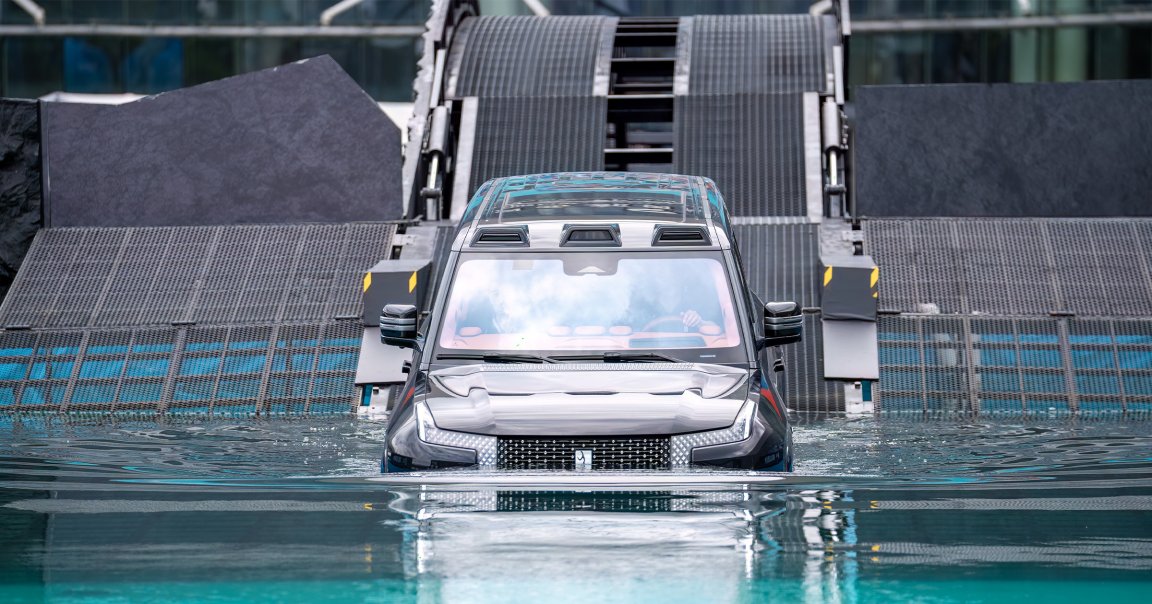
China’s electric vehicle industry is, by most accounts, experiencing unprecedented boom times: the cars are cheaper, consumers more primed to purchase them, and there are lots of viable options outside of Tesla.
Unfortunately, that competition comes with a price — or rather, with a price war. As the New York Times reports, rabid competition among about 50 of the country’s top EV automakers has led to repeated price-slashing in a manic hunt for new buyers. As those manufacturers race to the bottom, it’s causing an immense financial squeeze: many have started having trouble paying their suppliers to meet demand, instead imploring state-run banks to help them build more factories.
In other words, it’s a startling reversal of expectations: in China, the world’s largest communist country, an unfettered free market is driving down prices so far that it’s threatening the auto sector; in the United States, which has long championed the capitalism, the auto industry is run entirely by established players, and required a massive bailout in late 2008 to keep it and the economy afloat.
Authorities in China, which does money and manufacturing very differently, are clearly hoping to avoid a similarly expensive and embarrassing crisis. The Chinese government has begun campaigning against what is, as the NYT reported in a July story about the issue, widely known there as “involution”: a cycle of excessive competition leading to unsustainable deflation, or lowered prices.
Pitched as something that would benefit both the country’s EV industry and its economy, the anti-involution push hasn’t exactly borne any fruits just yet.
As the Associated Press reported back in June, 17 Chinese automakers — including BYD, which surpassed Tesla as the world’s largest EV manufacturer in 2024 — pledged that they would pay their suppliers within 30 days of parts received. A recent compliance report, the NYT notes, shows that that hasn’t yet happened, and only three automakers that are either partially or fully state-owned had set up payment plans.
A huge part of the involution problem — which economists say hurts other industries, including steel, batteries, and petrochemicals, among others — appears to be that China’s EV industry writ large seems to have inherited a toxic worldview from Elon Musk, whose Tesla investments in the country laid the groundwork for EV manufacturing.
“This is a race to dominate, not a race to profitability,” said Bill Russo, the CEO of the Shanghai EV consulting firm Automobility, in an interview with the NYT.
Much like the rash of AI startups in the US that will invariably peter out before long, China’s booming EV industry is likely to shrink by the end of the decade. According to a recent prediction from the global consulting firm AlixPartners, only about 15 percent of the 129 brands full or partial electric vehicle brands recorded in China last year will still be making money in 2030.
Stephen Dyer, the head of AlixPartners’ Asian automotive arm, suggested that although “more than that [number of Chinese EV makers] will keep going,” many “will require deep-pockets investors to keep them going.”
In the meantime, Beijing is concerned that if EV manufacturers keep borrowing from state-run banks to keep building more and more cars with more and more bells and whistles — BYD’s luxury Fangchengbao Bao 8 SUV, for instance, has a dashboard-controlled drone that takes off from the roof and sends its AI-enhanced footage to the driver’s phone — it could result in an economic crisis.
And if you’re concerned about the wellbeing of the global economy, you’d better hope it doesn’t come to that.
More on Chinese EVs: China Is Using Trump’s Tactics Against Him to Corner the EV Market